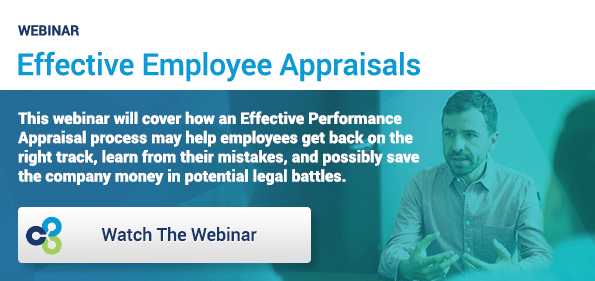 Being a good boss (or in your case, being a good employer) doesn’t mean being bossy or micromanaging--it means being a good leader.
Being a good boss (or in your case, being a good employer) doesn’t mean being bossy or micromanaging--it means being a good leader.
Poor leadership hinders the group’s ability to reach goals and discourages an individual’s resolve. However, great leadership seeks to ignite the high performer’s level of determination resulting in a superior level of effectiveness and efficiency.
Great leadership can produce the most significant result in a group’s level of productivity because it’s the only component that encourages the inherent desire for excellence.
Managers can best lead their employees toward excellence by using various key characteristics to foster professional development, accountability, and respect which results with fulfillment in the employment relationship.
Characteristics of a Good Boss
Good bosses, and in turn, great leaders, do the following:
- Seek feedback. Regularly ask your staff how you're doing as a leader. This will communicate your commitment to serving in their success which, in turn, supports your own success. Be prepared to accept feedback from your employees and adjust.
- Give staff a battle cry. To what victory are you leading your team? Speak in terms beyond the mission or vision statement and rally them with a battle cry. Most employees, the right employees, want to make a real difference.
- Explain the mundane. Employees ask, “What are we doing and why are we doing it?” Employees want to know how their job fits into the big picture. Explain to your staff how their work on a project or case matters. Encourage them to think on their own.
- Smile and treat others well. Employees watch your body language for non-verbal communication to determine how they should behave. Be positive. Have a sense of compassion, respect, and kindness. Operating from this perspective is fundamental to being a magnificent leader.
- Communicate. Set clear expectations. Be consistent. Also, take full responsibility for every miscommunication. If a listener did not understand your direction, it is more likely because of our failure to communicate well, not the listener’s inability to understand.
- Act as mentor. Mentoring is a powerful way to foster professional development. The high mark of your leadership is your ability to be away from your team for a short period and watch it sustain success without your daily involvement. At this level of leadership, you will become free to handle new opportunities.
Consider some of your favorite leaders. What stands out about them that made them so great? Consider this: no employee ever says, “he was a great leader and really inspired me to excellence when he acted like a jerk!”
Here are some other important things to consider:
Job Descriptions
Job descriptions are important so employees understand what their duties are and can help keep employees on track because it lets them know on what they will be evaluated.
Policies and Procedures
Having clear, written policies and procedures removes any confusion or miscommunication about what is expected from employees (or what is prohibited). This helps eliminate any surprises if corrective action measures are needed at some point (or upon annual review time).
Employee Evaluations
Employee evaluations are one of the most important responsibilities a supervisor performs.
They are a measuring device for both employees and supervisors. People need to know where they stand and how they’re doing. Decisions about promotions, bonuses, pay raises, demotions and terminations usually hinge on performance evaluations. So on one hand:
- When employees need help getting back on track, performance appraisals open the doors of communication and clarify expectations. But also…
- When employees have made great strides, performance appraisals are a great time for pats on the back as well.
Everyone performs better if they have a target to shoot for and effective appraisals will set up these goals and should answer the question "how am I doing?" Also, for an employee who may have gotten off track it should help them get recentered and make them a productive employee again.
Remember, performance evaluations are not meant to beat someone up over their shortcomings. Constructive criticism = Improvement. You want to strive for Results-Oriented Performance Appraisals that are:
- Fair
- Honest
- Documented
- Include a Plan of Action
Corrective Action
We used to refer to this as “disciplinary action,” but not for the sake of being politically correct (or just sounding nicer), I prefer the term “corrective action,” because the concept isn’t meant to be about punishing employees for being bad. The concept is to correct the bad behavior.I mentioned earlier about the importance of policies and procedures--in the event that an employee strays from said rules, you’ll want to point out the issue, explain what is expected and make it clear what the consequences might be if it is not corrected (maybe termination of employment). Ideally, they clean up their act and become a productive employee again. In other words, everyone wins.
Benefits
Offering certain benefits is always a good tool for both recruiting and retention of employees. Based on the size of your firm, you’ll have to decide what is doable in terms of things like paid time off or even employer paid insurance products.Sometimes even benefits like an Employee Assistance Program (EAP) can be very inexpensive to offer your employee but provides a lot of useful benefits to them (like various types of counseling: depression; substance abuse; stress management; sometimes things like smoking cessation programs, etc.) and makes them feel like you really care about them as a person--and not just a worker.
Conclusion
You can see there are many aspects that constitute how to be a good boss, but rather than just being “the boss,” if you’re a leader – leading by example and guiding your employees – you will end up with a productive, efficient and happy staff. To learn more, we invite you to contact a specialist today!



.png)

